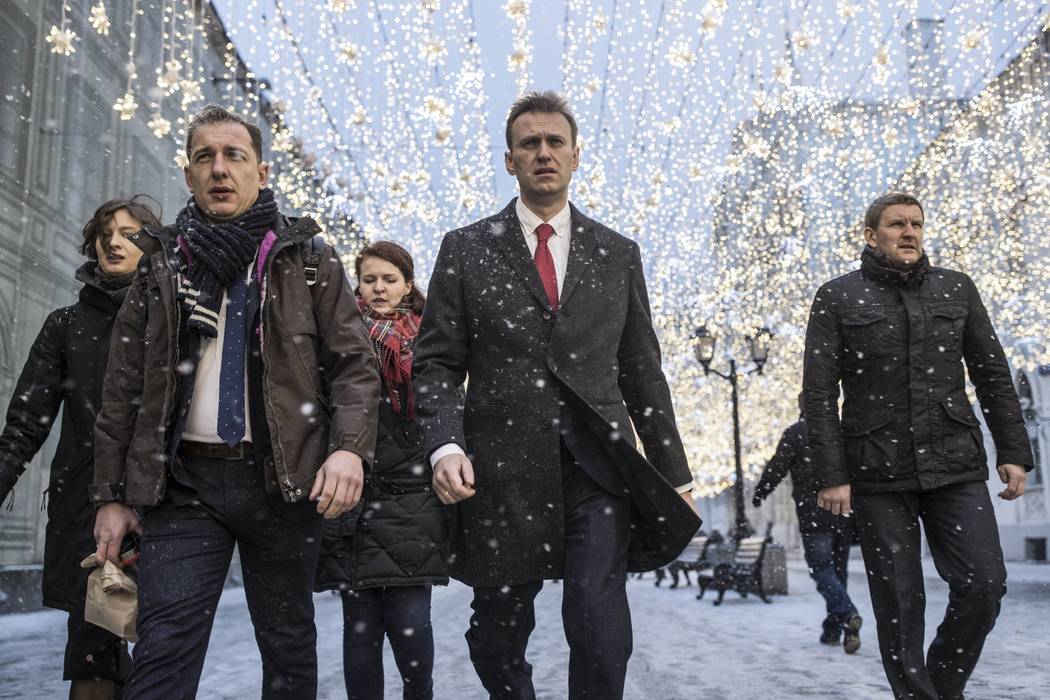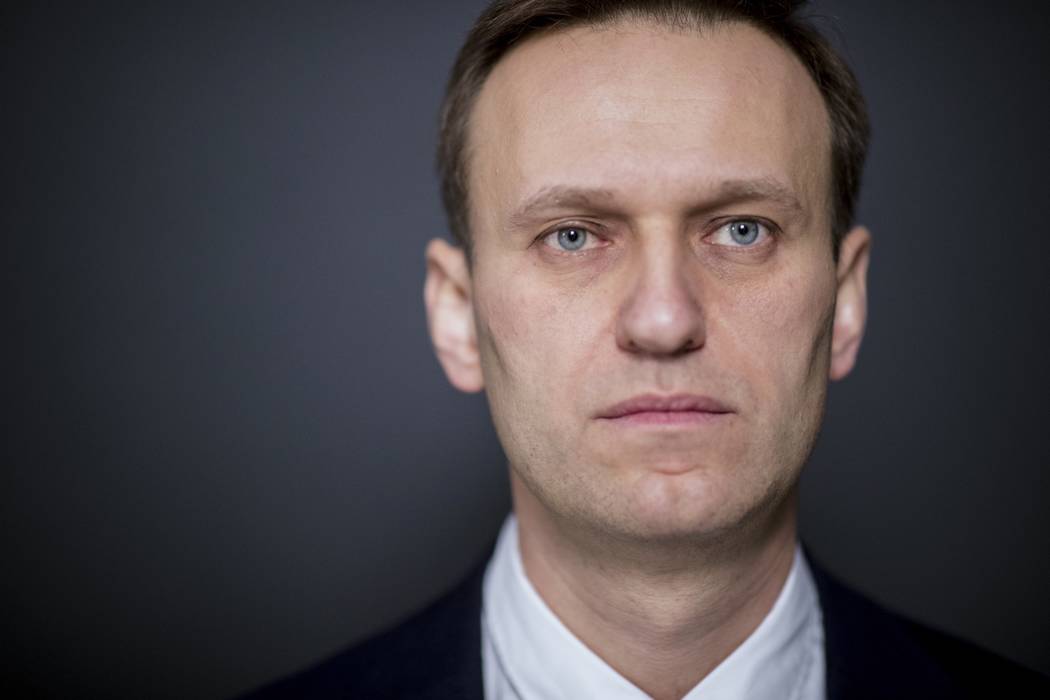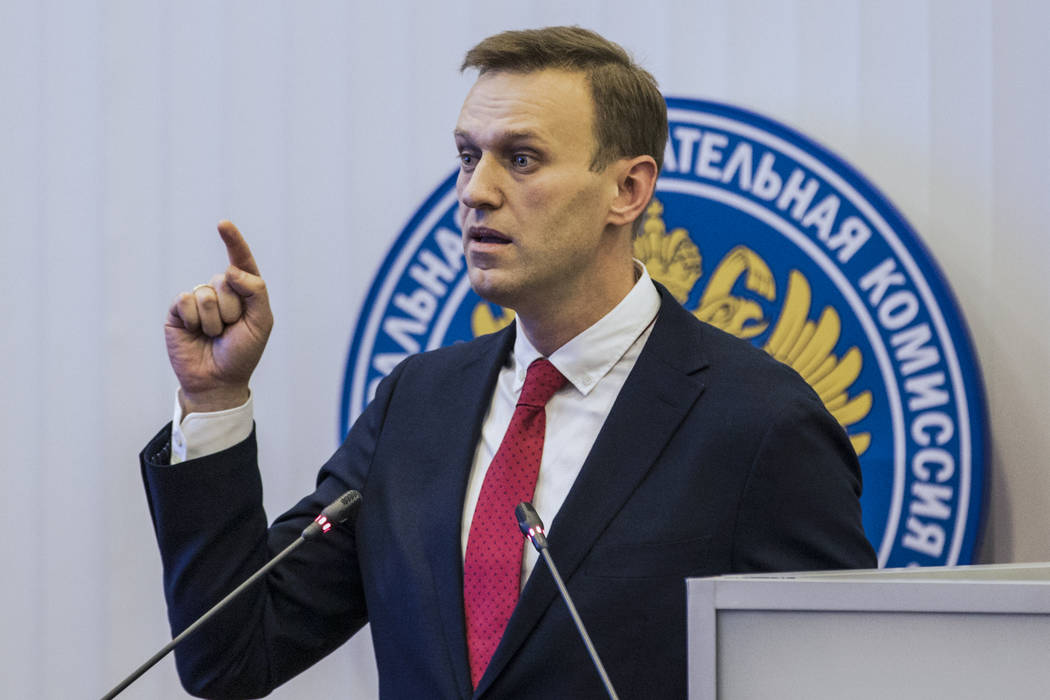Officials say Russia election boycott campaign may be illegal
MOSCOW — Russian officials should review opposition leader Alexei Navalny’s calls for an election boycott to see if they might be breaking the law, the Kremlin said Tuesday, hinting at possible legal repercussions.
In a widely anticipated decision, Russia’s top election body ruled Monday to formally bar anti-corruption crusader Navalny from running in the presidential election next March. Navalny promptly put out a video statement, saying that the ban shows that President Vladimir “Putin is terribly scared and is afraid of running against me,” and called on his supporters to stay away from the vote in protest.
Putin, who has been in power for 18 years, announced his bid for re-election earlier this month, but so far has refrained from canvassing. In contrast, his most prominent rival, anti-corruption crusader Navalny has been campaigning aggressively all year, reaching out to the most remote parts of the country.
Opinion polls say that Putin should easily win the March vote.
Putin spokesman Dmitry Peskov on Tuesday wouldn’t comment on the Election Commission’s decision to bar Navalny but said the “calls for boycott ought to be carefully studied to see if they are breaking the law.”
Peskov also rejected suggestions that Navalny’s absence on the ballot could dent the legitimacy of Putin’s possible re-election.
The Russian law doesn’t say calls for an election boycott are illegal, but authorities last year blocked access to several web-sites calling for the boycott.
Navalny rose to prominence in 2009 with investigations into official corruption and became a protest leader when hundreds of thousands took to the streets across Russia in 2011 to protest electoral fraud. A few years later and after several short-term spells in jail, Navalny faced two separate sets of charges of fraud which were viewed as political retribution aimed to bar him from running for office. In his only official campaign before his first conviction took effect, Navalny garnered 30 percent of the vote in the race for Moscow mayor in 2013.
The European Union said in a statement on Tuesday the decision to keep Navalny off the ballot “casts a serious doubt on political pluralism in Russia and the prospect of democratic elections next year.”
The EU’s spokeswoman for foreign affairs, Maja Kocijancic, pointed to a European Court of Human Rights ruling that Navalny was denied the right to a fair trial when he was convicted in 2013.
“Politically-motivated charges shouldn’t be used against political participation,” Kocijancic said.



















